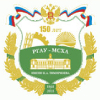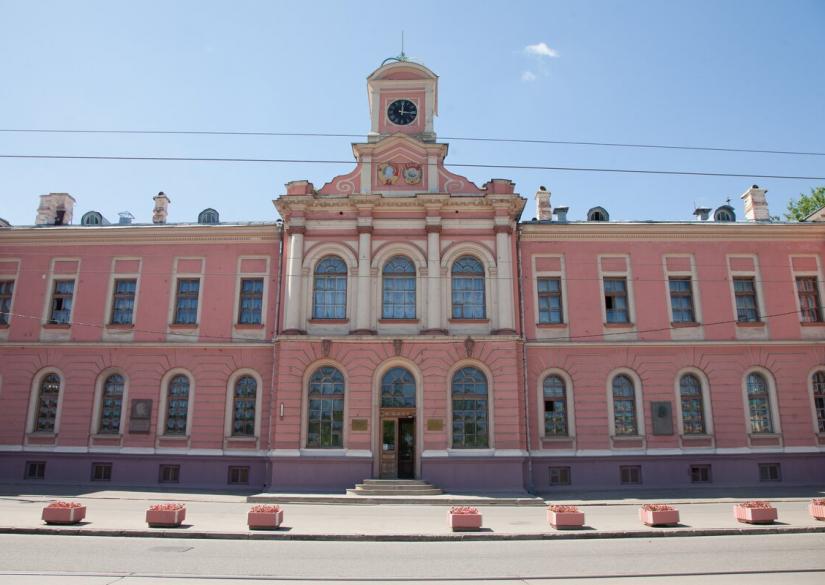49, Timiryazevskay St. Moscow 127434, Russian Federation
Career Counselling

Russian State Agrarian University - Moscow Timiryazev Agricultural Academy is the leading institution of higher education in the field of Agriculture in Russia. Located in the capital city of Moscow, it is over 150 years old and is now home to over 14,000 students. Its campus is extremely large and scenic, with over 1,300 acres of densely forested and well farmed land, allowing students to gain practical exposure along with their studies.
The academic organizational structure of RSAU - MTAA consists of 8 Institutes (Amelioration, Wate...
| Establishment year | 1865 |
| Total Students | 14,000 |
| International Students | 800 |
| QS World University Rankings 2024 | 1201 - 1400 |
| Campus Size | 1300+ acres |
| Total Number of Campuses | 1 (Moscow) + 2 branches (Kaluga and Dmitrov) |
| University Website | http://eng.timacad.ru/ |
| No. of Schools and Divisions | 8 Institutes |
| Nobel Prize Winner Alumni | 0 |
| No. of Education Programs | 35 (Bachelor’s), 33 (Master’s), 15 (PhD) |
| Student to Faculty ratio | N/A |
RSAU - MTAA offers undergraduate and postgraduate courses through 8 Institutes, which are further subdivided into 79 Departments.
All international applicants (undergraduate and postgraduate) to MTAA must satisfy the following requirements:
International applicants to Bachelor’s degree programs at MTAA must follow these steps:
The admission process for Master’s and PhD programs is similar; the only difference is in the types of documents submitted.
Undergraduate tuition fees for international students have three different values:
Postgraduate tuition fees for international students are 301,350 rubles per year for most courses (including Earth Sciences, Construction Engineering, Industrial Ecology, Applied Geology, and Electrical and Thermal Engineering). A few MSc courses have annual tuition fees of 269,800 rubles.
PhD program tuition fees for international students at MTAA lie between 328,500 and 336,250 rubles per year for all courses. All students must also budget for accommodation and living costs, including food and travel; these typically add up to 10,000 to 20,000 rubles per month, depending on the type of dormitory chosen.

The main RSAU - MTAA campus is in Moscow, with branches in the towns of Dmitrov and Kaluga. The campus is well equipped with cafes, canteens, parking lots, and sports and recreational areas. There are 14 dormitories that can accommodate over 10,000 people; which ensures that international students will always be able to find housing at a reasonable price. These dormitories are within walking distance of the main academic buildings, as well as the Central Scientific Library, sports grounds and courts, and the Student Art and Activity Center.
Ten main museums in MTAA add to the cultural fabric of the University. From the Museum of University History to the Museum of Minerals and Geology to the Horse Breeding and Bee Keeping Museums, each of these is an integral part of the past and future of MTAA. More than half of the University’s area is occupied by forests and orchards, ensuring that MTAA plays an important role in making Moscow a greener place.

Sports and fitness activities are given prime importance in the extracurricular lives of students at MTAA. There are grounds and sports centers where members of the University community can play dozens of sports, including basketball, table tennis, volleyball, wrestling, water polo, football, track and field, sambo, powerlifting, skiing, cheerleading, and many more. The formally constituted sports and fitness clubs engage more than 1200 students, with informal sports players numbering many more. There are also fitness and health clubs in and around the dormitories, ensuring 24 x 7 access to exercise options.
The Physical Training Department organizes several sports fixtures. For example, the University Sports Festival Games are the most prestigious annual sporting events, with 24 different sports represented. There are also annual sports competitions for first year students in 8 disciplines, and sports meets for students with special needs in 4 different sports. There are also Sports Games organized for staff and faculty members every year. These high level events together engage over 3,000 students and staff members every year, and this tradition ensures that the University community stays healthy in the most natural way possible. Elite Athletes at the University have participated in the Olympic Games and World Championships.
Many of the scholarships that are open to all students of MTAA come from the corporate partners of the University. For example, the American Cargill International Scholarship program invites annual applications from highly talented students of MTAA. Awardees are selected based on academic performance and leadership potential, and each winner is given a scholarship amount of up to 370,000 rubles, in addition to invitations to participate in leadership seminars to learn from the senior employees of Cargill. The selection process involves a detailed online application and a video interview. Bayer also offers competitive scholarships to students based on their performance in a biomedical case study selection process (this competition is called BayStudy); awardees are given both an internship at Bayer and a financial scholarship.
Through the Erasmus exchange scheme, the most talented students of MTAA, both domestic and international, receive a chance to study for a semester at leading Universities in Europe, primarily in Poland, Hungary, and France. This competition is extremely difficult to pass, and the rewards include a full scholarship to study abroad, in addition to exposure to cutting edge research and academic work.
